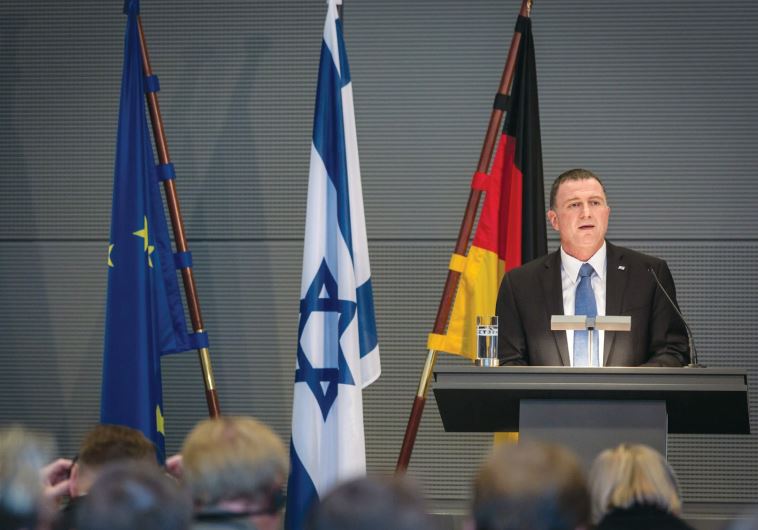German Parliament President: We reject settlement labeling, understand Israel's anger
Bundestag President calls labeling decision "unnecessary and unwise."
 KNESSET SPEAKER Yuli Edelstein speaks to Bundestag members in Berlin.(photo credit: BOAZ ARAD)Updated:
KNESSET SPEAKER Yuli Edelstein speaks to Bundestag members in Berlin.(photo credit: BOAZ ARAD)Updated: